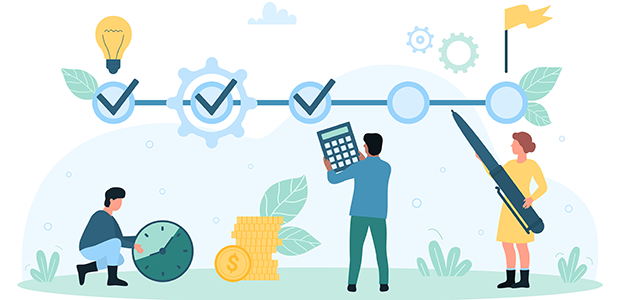
Getting organised in the workplace for 2023
The team at Craft, the company building the future of documents, have revealed their expert advice and recommendations to help you get ultra-organised in the workplace, and achieve your career goals in 2023.
So, whether you are a fresh grad getting ready to kickstart your professional life in the new year, or looking to improve in your current role, there’s no better time to start thinking about any changes or additions you want to make to start the year off strong.
A spokesperson for Craft commented: “From online tools that help divide tasks and keep everyone up to date, to communication platforms that streamline conversations and delivery, there are a number of methods to stay organised and achieve your career goals in the new year and beyond.”
“One effective way is to improve productivity through strong organisational processes, which help individuals and teams stay focused and keep on top of important tasks.
“While work-life balance can make staying and keeping organised a consistent challenge, there are a variety of easy-to-implement measures you can put in place."
So whether you are interested in improving your communication skills or simply becoming a more organised individual, Craft lends their advice.
With these five helpful and simple tips, you’ll be streamlining your work life in no time.
Structure your calendar
Structuring each day can help avoid being overwhelmed by daily tasks. Start the day with ‘personal time’, spending time going through emails or picking up on any updates. This is the time to respond to any necessary messages, delete stuff that isn’t important, and decipher which tasks are a high priority for the day ahead.
From there, block out your calendar. Whether you prefer to do this on a daily, weekly, or monthly basis, it’s up to you, and will likely depend on your job. Identify the tasks that need to be accomplished, then estimate how many hours each task should take, and implement time blocking using your favourite calendar app - this could be done through an email calendar like Google Calendar or another programme.
Having time allotted or your calendar can also inform your team and colleagues about what you’re working on and let them know when you are free for meetings.
Use organisation templates
To get organised, it’s important to sort through the noise. Many of us are guilty of having a whole host of documents intended to keep tasks organised that often end up being forgotten or not used at all.
To avoid this, ask yourself: what templates can be created that would help me and my team stay organised? Creating templates can help centralise tasks and avoid document fatigue. For example, a centralised folder may consist of a personal task list, a budget planner, a client progress tracker, and meeting notes templates.
This way, there are documents that can be consistently updated and shared by the wider team. Fortunately, there is a whole range of templates available online for free, ready to use.
Keep your workspace organised and separate
If you want to stay organised at work, you need to ensure your workspace is organised as well. A messy workspace causes additional stress - and results in time wasted looking for materials you need.
Having a workspace that is clean, tidy, and organised helps put you in a good mindset for the day ahead, and saves you time in the long run.
If you work from home - and have the space - having a designated area to work can create separation between home and work. And ultimately makes it easier to slip into ‘work mode’ even when you are still in your own home.
Take regular breaks
While taking breaks and being organised may not sound directly related - taking regular breaks can help you remain focused, minimise distractions and reduce the risk of missing out on important details or forgetting to complete certain tasks.
So, allow yourself time to step away from your desk, whether it’s by going for a walk, getting a snack, or frequenting the gym on your lunch break. If you are in the middle of an important task and focusing well, wait until there is a good time to take a break.
Taking breaks can also create separation between different tasks, and prevent you from multitasking. Focusing on one task at a time - rather than trying to complete too many things at once - helps prevent disorganisation and mistakes.

